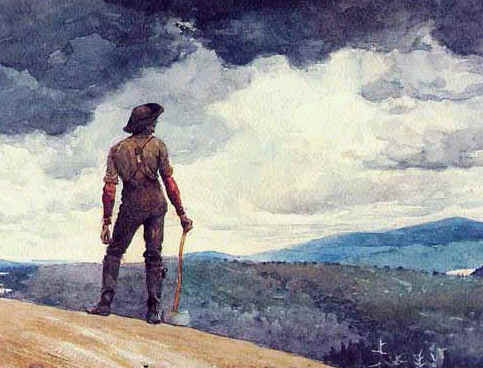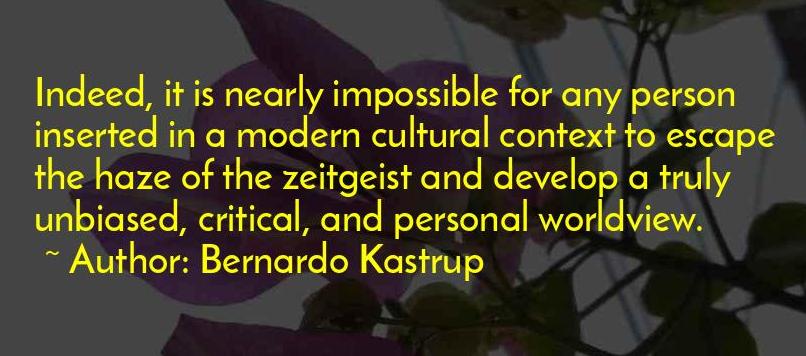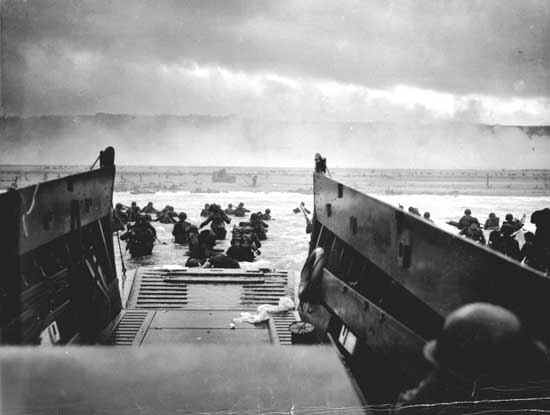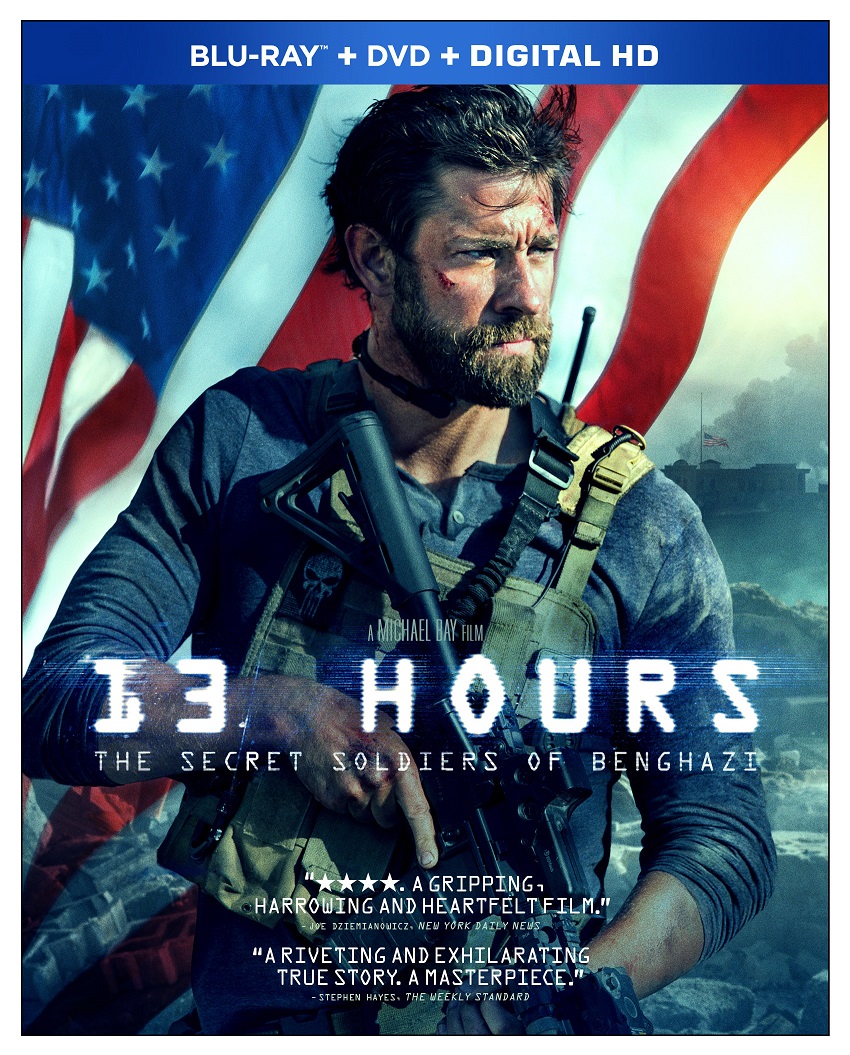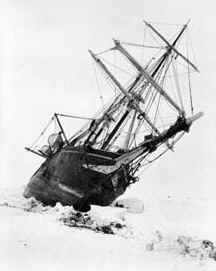|
home | what's new | other sites | contact | about |
||
|
Word Gems exploring self-realization, sacred personhood, and full humanity
Courage
"To go against the dominant thinking of your friends, of most of the people you see every day, is perhaps the most difficult act of heroism you can have." Theodore H. White, The Making of the President 1960
"It is nearly impossible for any person inserted into a modern cultural context to escape the haze of the zeitgeist and develop a truly unbiased, critical, and personal worldview." Dr. Bernardo Kastrup, PhD philosophy, PhD computer science, for many years worked at CERN, the large hadron collider in Geneva; Materialism Is Baloney
Winston Churchill, to the House of Commons on May 13, 1940 in his first address as the newly appointed Prime Minister: "To form an administration of this scale and complexity is a serious undertaking in itself, but it must be remembered that we are in the preliminary stage of one of the greatest battles in history, that we are in action at many points in Norway and in Holland, that we have to be prepared in the Mediterranean, that the air battle is continuous and that many preparations have to made here at home. In this crisis I hope I may be pardoned if I do not address the House at any length today. I hope that any of my friends and colleagues, or former colleagues, who are affected by the political reconstruction, will make all allowance for any lack of ceremony with which it has been necessary to act. I would say to the House, as I said to those who have joined this government: I have nothing to offer but blood, toil, tears and sweat. We have before us an ordeal of the most grievous kind. We have before us many, many long months of struggle and of suffering. You ask, 'What is our policy?' I will say; 'It is to wage war, by sea, land and air, with all our might and with all the strength that God can give us: to wage war against a monstrous tyranny, never surpassed in the dark lamentable catalogue of human crime. That is our policy.' You ask, 'What is our aim?' I can answer with one word: 'Victory' - victory at all costs, victory in spite of all terror, victory however long and hard the road may be; for without victory there is no survival."
Winston Churchill, on the retreat from Flanders, before the House of Commons, June 4, 1940: "We shall not flag nor fail. We shall go on to the end. We shall fight in France and on the seas and oceans; we shall fight with growing confidence and growing strength in the air. We shall defend our island whatever the cost may be; we shall fight on beaches, landing grounds, in fields, in streets and on the hills. We shall never surrender and even if, which I do not for the moment believe, this island or a large part of it were subjugated and starving, then our empire beyond the seas, armed and guarded by the British Fleet, will carry on the struggle until in God's good time the New World with all its power and might, sets forth to the liberation and rescue of the Old." Winston Churchill, anticipating the Battle of Britain, before the House of Commons, June 18, 1940: "What General Weygand called the Battle of France is over. I expect that the Battle of Britain is about to begin. Upon this battle depends the survival of Christian civilisation. Upon it depends our own British life and the long continuity of our institutions and our Empire. The whole fury and might of the enemy must very soon be turned on us now. Hitler knows that he will have to break us in this island or lose the war. If we can stand up to him, all Europe may be free and the life of the world may move forward into broad, sunlit uplands. But if we fail, then the whole world, including the United States, including all that we have known and cared for, will sink into the abyss of a new Dark Age, made more sinister, and perhaps more protracted, by the lights of perverted science. Let us therefore brace ourselves to our duties, and so bear ourselves that, if the British Empire and its Commonwealth last for a thousand years, men will say, This was their finest hour."
D-DAY on OMAHA BEACH June 6, 1944
General William "Billy" Mitchell: In September 1925, when, due to bureaucratic negligence, the Navy's dirigible Shenandoah, along with Mitchell's fellow airmen, were lost in a storm, General Mitchell made a statement to the press charging “incompetency, criminal negligence, and almost treasonable administration of the national defense by the War and Navy Departments.” He was, as he expected, immediately court-marshaled, which trial he hoped would draw media attention to US defense needs. He hypothesized an attack by Japanese aircraft launched from great carrier ships directed at the Hawaiian Islands. Subsequent events, including the attack on Pearl Harbor, proved the validity of many of his prophesies. Many of his proposals, after his death, were finally adopted by the Army Air Force during World War II. Lord Moran, Churchill: "The strength of will that has bent all manner of men to his purpose; the extraordinary tenacity ... with which he clings for months and if need be for years, to his own plans; the terrific force of personality that can brush aside all doubts and hesitations, and sweep away inertia, refusing to listen when weaker men begin to whine about difficulties; above all else, the superb confidence he exuded in 1940 [during the Battle of Britain]."
President Ronald Reagan, June 6, 1984, Normandy, 40-year commemoration of D-Day: "These are the men who took the cliffs ... They were what General Marshall called 'our secret weapon' - the best damn kids in the world." John Wooden: "Don't let what you cannot do interfere with what you can do." Gen. George S. Patton: "Unless you do your best, the day will come when, tired and hungry, you will halt just short of the goal you were ordered to reach, and by halting you will make useless the efforts and deaths of thousands." Sir Thomas Brown: "It is a brave act of valor to condemn death, but where life is more terrible than death it is then the truest valor to dare to live." Martin Luther King, Jr. (1929-1968), Memphis, Tennessee, 3 April 1968 (the evening prior to his assassination): "Like anybody, I would like to live a long life. Longevity has its place. But I'm not concerned about that now. I just want to do God's will. And He's allowed me to go up to the mountain. And I've looked over. And I've seen the promised land. I may not get there with you. But I want you to know tonight, that we, as a people will get to the promised land. And I'm happy, tonight. I'm not worried about anything. I'm not fearing any man. Mine eyes have seen the glory of the coming of the Lord." John Fitzgerald Kennedy, Inaguration speech, 20 January 1961: "Let every nation know, whether it wishes us well or ill, that we shall pay any price, bear any burden, meet any hardship, support any friend, oppose any foe, to assure the survival and success of liberty." Nathan Hale (1776), last words before being hanged by the British as a spy: "I only regret that I have but one life to lose for my country." Patrick Henry (1736-1799): "Is life so dear or peace so sweet as to be purchased at the price of chains and slavery?... I know not what course others may take, but as for me, give me liberty, or give me death!" John Fitzgerald Kennedy: "We choose to go to the moon; not because it is easy, but because it is hard." Winston Churchill: "You have enemies? Good. That means you've stood up for something, sometime in your life." George Bernard Shaw: "People are always blaming their circumstances for what they are. I don't believe in circumstances. The people who get on in this world are the people who get up and look for the circumstances they want, and, if they can't find them, they make them." Elbert Hubbard: "There is no failure except in no longer trying. There is no defeat except from within, no really insurmountable barrier save our own inherent weakness of purpose." A doctor addresses psychogenic mortality syndrome, can one will herself to die? "I work with very sick patients all the time, and it is my experience that if they don't want to get better then they don't get better." Rollo May: "It is highly significant, and indeed almost a rule, that moral courage has its source in identification through one's own sensitivity with the suffering of one's fellow human beings." Winston Churchill, Malakand Field Force, 1898: "Nothing in life is so exhilarating as to be shot at without result." Dolores Ibarruri, September 3, 1936: "It is better to die on your feet than live on your knees." E. M. Forster, as a small child: I would rather be a coward than brave because people hurt you when you are brave. Martin Luther King: "When evil men plot, good men must plan. When evil men burn and bomb, good men must build and bind. When evil men shout ugly words of hatred, good men must commit themselves to the glories of love." Daniel Boone (1735-1820): After his capture by Indians, a prolonged and anxious residence among them during which he was kindly treated, Boone discovered their intention of marching upon fort Boonesborough, and resolved, at the peril of certain death in the event of recapture, to attempt his escape and save his family and friends. Chased by 450 Indians, he performed that daring feat in the forty-third year of his age, and thus simply records it: "On the 16th [of June], before sunrise, I departed in the most secret manner, and arrived at Boonesborough on the 20th, after a journey of 160 miles, during which I had but one meal." At the fort he learned that his wife and children, despairing of ever seeing him again, had returned, and safely reached her father's home in North Carolina. The Indians assailed the fort, but were repelled with loss, and retreated. Boone then, in the autumn of 1778, rejoined his family on the Yadkin, and returned with them to Kentucky in 1780. Davy Crockett (1786-1836): a legend in his time and since, was born in 1786 in East Tennessee. He knew first-hand the brutalities of frontier life. His grandparents were murdered by Creek and Cherokee Indians before he was born. By twelve years old he was bound out to a cattle drover from whom he had to escape through a snowstorm when the drover forcefully kept Davy past the end of his contract. Not having any luck with formal education, Crockett ran away from home at the age of thirteen in 1799. Between 1811 and 1813 Crockett fought under the command of General Andrew Jackson in the Creek War. It was his reputation as an Indian fighter and frontiersman that first established his popularity. He served two terms in the Tennessee legislature and was elected to Congress three times. After years as a Democratic Jacksonian, Crockett broke ties with Jackson in 1828 and became a Whig for the remainder of his political career. Some say he pressed on to the Alamo after finding Sam Houston -- a Jackson protege -- in control of things in Anglo Texas. However, Houston had not been made commander-in-chief at the time Crockett arrived. More likely Crockett just pushed on to where the action was. Two quotes define the man: "First, make sure you're right, then go ahead." "You can go to hell -- I'm going to Texas." Old Farmer's Almanac: Happiness is a form of courage.
Herman Melville, Moby Dick: "'I will have no man in my boat,' said Starbuck, 'who is not afraid of a whale.' By this, he seemed to mean, not only that the most reliable and useful courage was that which arises from the fair estimation of the encountered peril, but that an utterly fearless man is a far more dangerous comrade than a coward." Jon Carroll: "You have experienced a character-building situation, and you will emerge from this dark time tougher and braver than ever. As Nietzsche said, that which does not kill me, makes me stronger. Alas, he forgot to add: That which kills me, kills me." General George Patton: "Courage is fear holding on a minute longer." Carl Sandburg: "Valor is a gift. Those having it never know for sure whether they have it till the test comes. And those having it in one test never know for sure if they will have it when the next test comes." C.S. Lewis: "Courage is not simply one of the virtues but the form of every virtue at the testing point, which means at the point of highest reality." Edward R. Murrow: "We will not walk in fear, one of another. We are not descended from fearful men, not from men who feared to write, to speak, to associate and to defend causes which were for the moment unpopular. This is no time . . . to keep silent."
answerable courages William Bradford, speaking in 1630 of the founding of the Plymouth Bay Colony: "It was answered that all great and honorable actions are accompanied with great difficulties, and must be enterprised and overcome with answerable [corresponding] courages. It was granted that the dangers were great, but not desperate, and the difficulties were many, but not invincible, ... and all of them, through the help of God, by fortitude and patience, might either be borne or overcome, ... [But] their condition was not ordinary. Their ends were good and honorable, their calling lawful and urgent, and therefore they might expect the blessing of God in their proceeding; yea, though they should lose their lives in this action, yet they might have comfort in the same, and their endeavors would be honorable." Anonymous: "Man cannot discover new oceans until he has the courage to lose sight of the shore." Clarissa Estes: "When a great ship is in harbor and moored, it is safe, there can be no doubt. But that is not what great ships are built for." Winston Churchill: "Never turn your back on a threatened danger and try to run away from it. If you do that, you will double the danger. But if you meet it promptly and without flinching, you will reduce the danger by half. Never run away from anything. Never!" President Ronald Reagan: "Almost two centuries ago a group of disturbed men met in the small Pennsylvania State House they gathered to decide on a course of action. Behind the locked and guarded doors they debated for hours whether or not to sign the Declaration which had been presented for their consideration. For hours the talk was treason and its price the headsman's axe, the gallows and noose. The talk went on and decision was not forthcoming. Then, Jefferson writes, a voice was heard coming from the balcony: They may stretch our necks on all the gibbets in the land. They may turn every tree into a gallows, every home into a grave, and yet the words of that parchment can never die. They may pour our blood on a thousand scaffolds and yet from every drop that dyes the axe a new champion of freedom will spring into birth. The words of this declaration will live long after our bones are dust. To the mechanic in his workshop they will speak hope; to the slave in the mines, freedom; but to the coward rulers, these words will speak in tones of warning they cannot help but hear. Sign that parchment. Sign if the next moment the noose is around your neck. Sign if the next minute this hall rings with the clash of falling axes! Sign by all your hopes in life or death, not only for yourselves but for all ages, for that parchment will be the textbook of freedom the bible of the rights of man forever. Were my soul trembling on the verge of eternity, my hand freezing in death, I would still implore you to remember this truth: God has given America to be free. As he finished, the speaker sank back in his seat exhausted. Inspired by his eloquence the delegates rushed forward to sign the Declaration of Independence. When they turned to thank the speaker for his timely words he couldn't be found and to this day no one knows who he was or how he entered or left the guarded room."
Sir Ernest H. Shackleton, British Naval Commander, 1914-1916 trans-Antarctic expedition: While never accomplishing its goal of the first crossing of the Antarctic continent, this expedition has become a testament to heroism and human endurance, with its men surviving nearly two years in the barren, frigid Antarctic after their ship, The Endurance, was caught in pack ice and eventually crushed. "... [the Antarctic] which we had entered a year and a half before with well-found ship, full equipment, and high hopes. We had 'suffered, starved and triumphed, grovelled down yet grasped at glory, grown bigger in the bigness of the whole.' We had seen God in His splendours, heard the text that Nature renders. We had reached the naked soul of man." Winston Churchill, the dark days of 1940: To those who mused of surrender in the face of the feared coming invasion, he castigated: “Let it end only when each one of us lies choking in his own blood." He forbade all peace dealings with the Nazis. Winston Churchill, recounted by Pamela Harriman, daughter-in-law: "I remember once when there was talk of an invasion [by Germany in 1940, during the darkest days of the war] ... and talk of children being sent overseas [for protection] - I remember him [Churchill] one night at the dinner table: 'You can each take a dead German with you!' - 'But, Papa, I don't know how to shoot a gun, I don't have a gun!' He looked at me very severely and said [she is laughing as she says this and mimics his sonorous tones]: 'You can go into the kitchen and get a carving knife!'" Winston Churchill, the Battle of Britain, August 21, 1940: "All our hearts go out to the fighter pilots whose brilliant actions we see with our own eyes day after day... never in the field of human conflict was so much owed by so many to so few." Within just a few months, half of the British pilots had been cut down by the Germans - this small elite fighting group were the ones who blocked Hitler's way regarding the invasion of England. Pamela Harriman remembers her father-in-law's grave words concerning these air-warriors and their spirit of ultimate sacrifice: "There is a time to live - and there is a time to die."
12 Angry Men, Henry Fonda, Lee J. Cobb: I change my vote to “not guilty.”
You what!?
You heard me… I’ve had enough!
Whadyya mean, you’ve had enough – that’s no answer!
Hey, listen! You just take care of yourself, huh, ya know?
He’s right! That’s not an answer. What kind of a man are you? You have sat here and voted “guilty” with everyone else because there are some baseball tickets burning a hole in your pocket – and now you’ve changed your vote because you say you’re sick of all the talking here?
Hey, listen, buddy! …
Who tells you that you have the right to play like this with a man’s life? Don’t you care…
Now wait a minute… you can’t talk like that to me!
I can talk like that to you! If you want to vote “not guilty” then do it because you are convinced the man is “not guilty” - not because you have had enough! And if you think he is guilty then vote that way! Or don’t you have the guts to do what you think is right?
Now, listen …
Guilty or not guilty!?
I told ya – not guilty!
WHY!!
Look, I don’t haff'tah…
You do have to! Say it! Why?
I don’t … ahhhhh … think he’s guilty!
(the questioner walks off in disgust)
Anais Nin: "Life shrinks or expands in proportion to one's courage." Robert Cody: "Have the courage to live. Anyone can die." Malcolm S. Forbes, 1978: "What extraordinary risks [Anwar] Sadat ran when, alone on his own, he went to Israel a year ago. What courage that took. What courage again was required at Camp David to lead the people of Egypt toward peace in spite of the fanatic resolve of the Libyan Qaddafis and Palestinian 'liberators' to kill him and any Israeli pact aimed at peaceful resolutions." Vice Admiral James Stockdale: Shot down on September 9, 1965, while on a mission over North Vietnam, Stockdale was taken to Hoa Lo Prison, the "Hanoi Hilton." His shoulders were wrenched from their sockets, his leg shattered by angry villagers and a torturer, and his back broken. But he refused to capitulate. Rather than allow himself to be used in a propaganda film, Stockdale smashed his face into a pulp with a mahogany stool. "My only hope was to disfigure myself," Stockdale wrote in his 1984 autobiography, In Love and War. The ploy worked, but he spent the next two years in leg irons. After Ho Chi Minh's death, he broke a glass pane in an interrogation room and slashed his wrists until he passed out in his own blood. His captors then relented in their harsh treatment of him and his fellow prisoners. His efforts to keep the enemy from using him for their purposes won him the Medal of Honor. Abigail Adams, First Lady of the United States, 1797-1801: "These are times in which a genius would wish to live. It is not in the still calm of life, or the repose of a pacific station, that great characters are formed... The habits of a vigorous mind are formed in contending with difficulties. All history will convince you of this, and that wisdom and penetration are the fruit of experience, not the lessons of retirement and leisure. Great necessities call out great virtues." Hannibal, Carthaginian General, (247-183 BC): "We must find a way - or we will make one." Ralph Waldo Emerson: "Whatever course you decide upon, there is always someone to tell you that you are wrong. There are always difficulties arising which tempt you to believe that your critics are right. To map out a course of action and follow it to an end requires courage." Act Of Valor, Lt. Rourke: "The most dangerous man is one who can put his pain in a box..." Chief Tecumseh: "Live your life that the fear of death can never enter your heart. Trouble no one about his religion. Respect others in their views and demand that they respect yours. Love your life, perfect your life, beautify all things in your life. Seek to make your life long and of service to your people. Prepare a noble death song for the day when you go over the great divide. Always give a word or sign of salute when meeting or passing a friend, or even a stranger, if in a lonely place. Show respect to all people, but grovel to none. When you rise in the morning, give thanks for the light, for your life, for your strength. Give thanks for your food and for the joy of living. If you see no reason to give thanks, the fault lies in yourself. Abuse no one and no thing, for abuse turns the wise ones to fools and robs the spirit of its vision. When your time comes to die, be not like those whose hearts are filled with fear of death, so that when their time comes they weep and pray for a little more time to live their lives over again in a different way. Sing your death song, and die like a hero going home."
|
||
|
|
